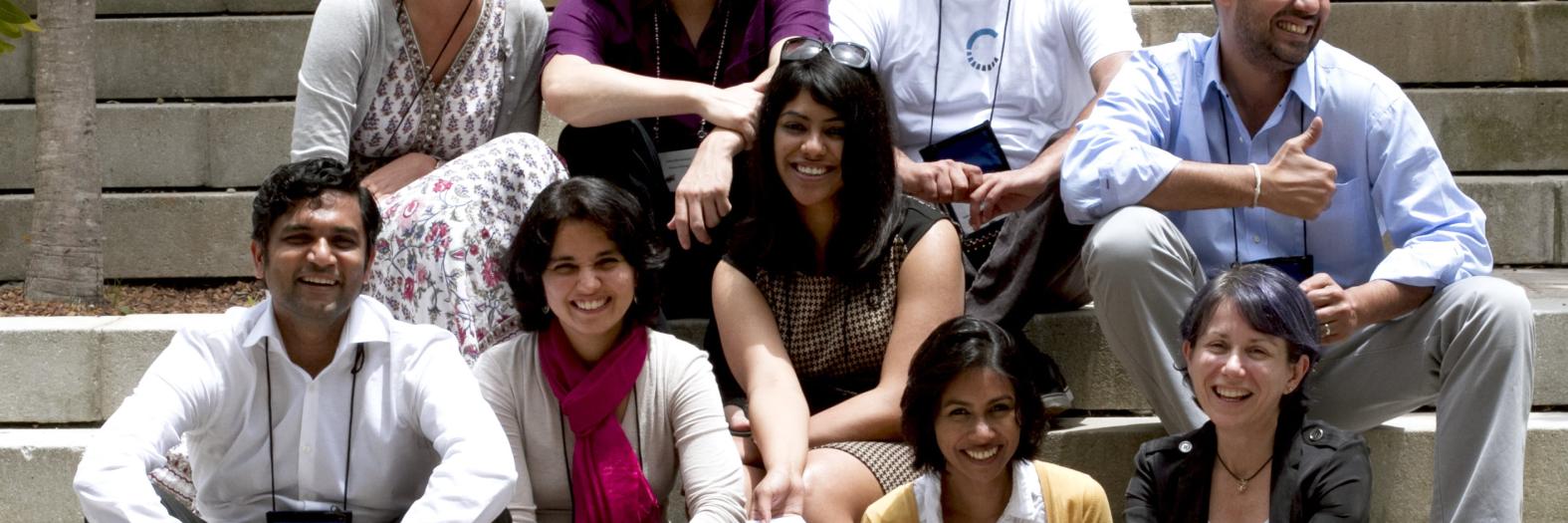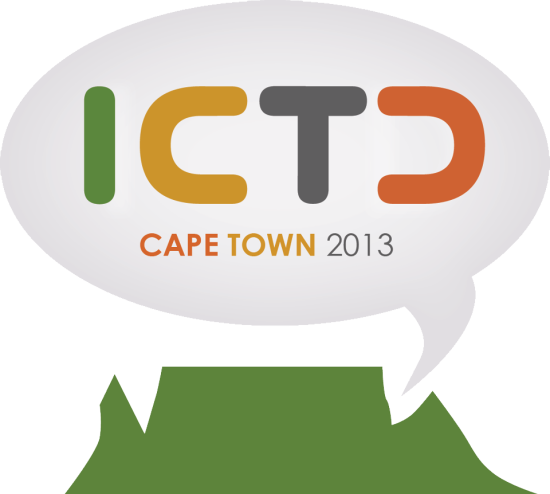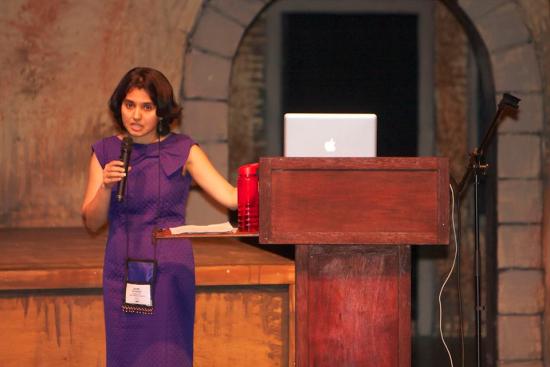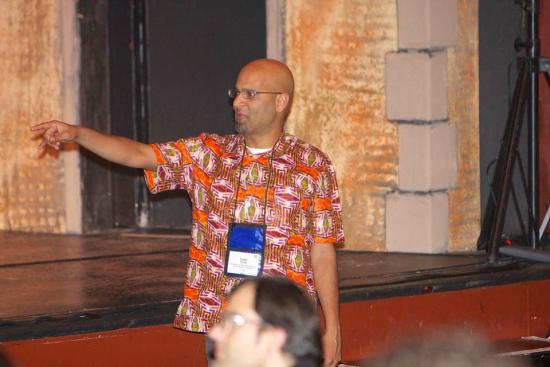A group of School of Information faculty, Ph.D. students, and alumni spent this week in Cape Town, South Africa, for the Sixth International Conference on Information and Communication Technologies and Development (ICTD2013). The I School delegation presented over a dozen papers, notes, demonstrations, and workshops.
ICTD is the world’s premier conference examining the role of computers and communications in social, economic and political development. ICTD2013 provided an international forum for scholarly researchers exploring the role of information and communication technologies (ICTs) in social, political, and economic development.
I School professors Jenna Burrell and Tapan Parikh presented their research, along with doctoral students Ishita Ghosh, Elisa Oreglia, Meena Natarajan, and Rajesh Veeraraghavan and recent Ph.D. alumnae Janaki Srinivasan and Melissa Densmore.
Ph.D. student Meena Natarajan and assistant professor Tapan Parikh presented research exploring the HIV epidemic in developing regions and uncovering socio-cultural reasons that information-based solutions have proven ineffective at changing risky behavior. Parikh also co-authored a paper colleagues from Berkeley’s computer science department suggesting that recent technological innovations might make small-scale cellular networks both technically and economically feasible, bringing cellular connectivity to previously isolated regions.
Doctoral student Elisa Oreglia, who will receive her Ph.D. later this month, presented a paper on information-sharing practices among rural Chinese farmers. Her ethnographic research reveals the ways information projects have failed to support the traditional patterns of communication and knowledge-sharing among farming communities, slowing the spread of those information technologies.
Ph.D. student Rajesh Veeraraghavan explored the use of information technology to eliminate government corruption, taking an open government initiative in Andhra Pradesh, India, as a case study.
Associate professor Jenna Burrell and recent alumna Janaki Srinivasan (Ph.D. ’11), now at the Virginia Polytechnic Institute, revisited a classic study of mobile phone use in fishing markets in north Kerala, India. Their analysis uncovered some of the special circumstances that made the earlier experiment a success and pointed out the possibility of blind spots when one tries to generalize the experiment to other settings.
Srinivasan also co-authored an analysis of the success of ‘Aadhaar,’ large infrastructure project to provide biometric-based identification for the 1.2 billion residents of India. She compared the challenge of gaining legitimacy for physical infrastructure projects, like recent investments in railroads and dams, versus electronic infrastructure.
Ph.D. student Ishita Ghosh presented her research into the spread of mobile banking and “branchless banking” in India over the last five years. She pointed out the importance of retail banking agents to support the new mobile infrastructure, especially for illiterate, semi-literate, or non-English speaking users.
Alumna Melissa Densmore (Ph.D. ’12), now at Microsoft Research India, presented a study co-authored by professor John Chuang and others examining the interaction of multiple new new communication technologies in a Ugandan health-financing organization. Rather than focusing on the introduction of a single technology, she analyzes how stakeholders use different technologies in parallel, with different communication channels supporting and reinforcing each other.
Densmore also co-authored an analysis of the use of employer-issued mobile devices for international development and what happens when employees do or don’t follow their employers’s restrictions on the use of the devices, as well as a study of ‘Jugaad’ as concept of user-driven innovation in ICTD research; ‘Jugaad’ refers to an improvised arrangement or work-around providing a quick, alternative way of solving or fixing a problem.
In the conference’s demonstration track, Parikh demonstrated three recent projects he has helped develop: Local Ground, a mapping system integrating paper and electronic maps, developed with I School Ph.D. student Sarah Van Wart; Captricity, a web-based service for digitizing paper documents that contain human-entered or other unique symbolic data, developed by computer science Ph.D. alumnus Kuang Chen; and Awaaz.De, which provides hosted and open-source voice solutions that help organizations engage communities in any language to make social media accessible for everyone.
In addition, Densmore organized a workshop on “Mobile Media and Development” and Ishita Ghosh organized a special interest group on “Mobiles & Money and Everything In Between.”
Jenna Burrell served as co-chair of the conference’s open sessions committee and Tapan Parikh was co-chair of the papers committee.













